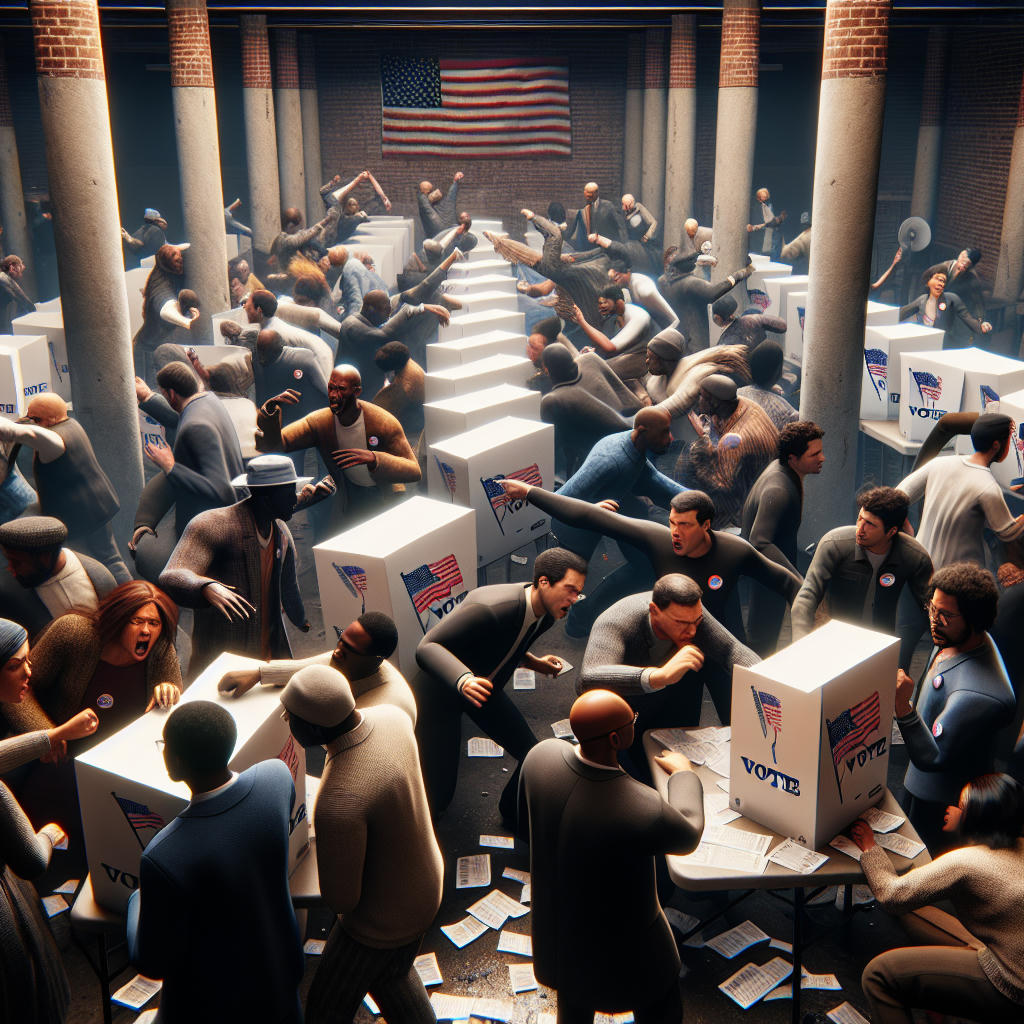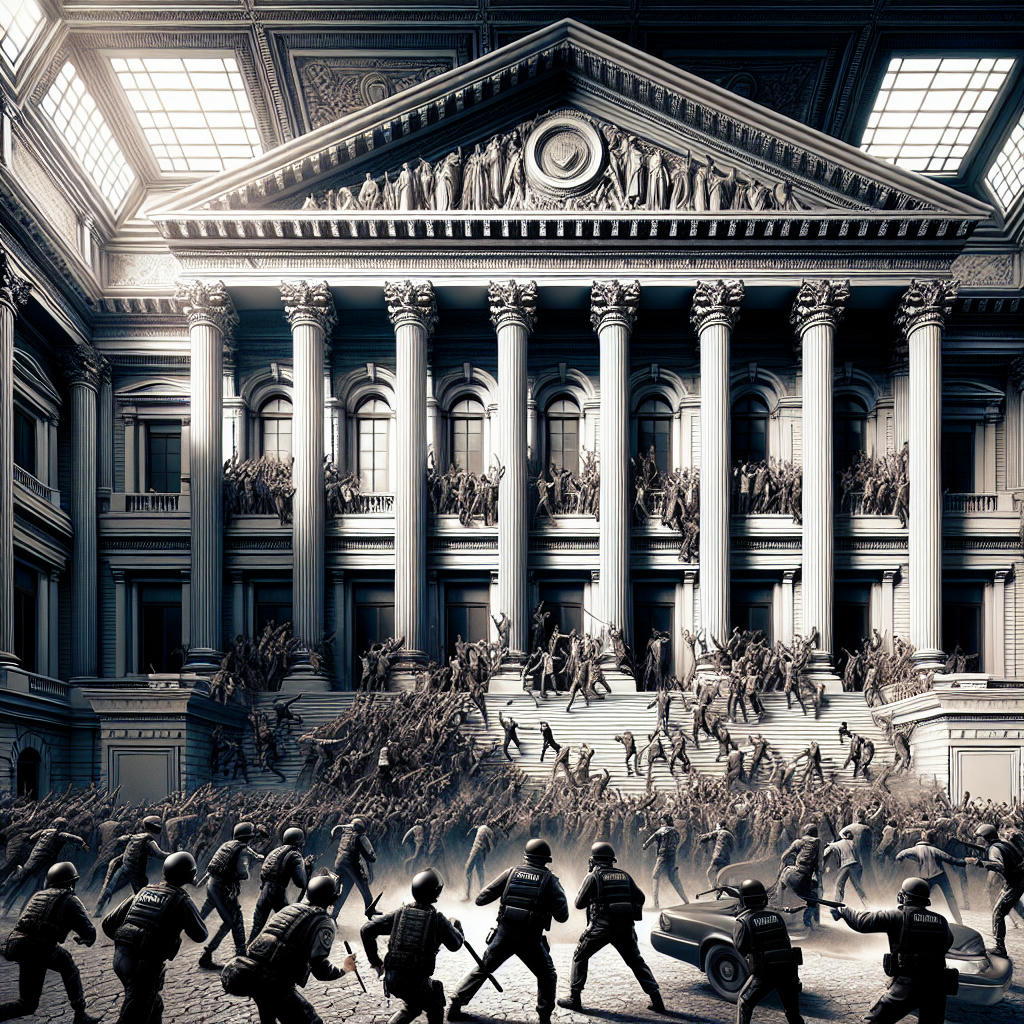In the annals of American political history, few figures have been as polarizing as Joseph R. Biden Jr., the 46th President of the United States. His tenure has been marked by a series of contentious events and decisions that have led some to claim that he has "overthrown" America not once, but three times. This article delves into these claims, examining the narratives, the evidence, and the broader implications for American democracy.
The First Alleged Overthrow: The 2020 Election
The 2020 Presidential Election was one of the most contentious in American history. The COVID-19 pandemic necessitated unprecedented changes in the voting process, including a significant increase in mail-in ballots. These changes, coupled with the highly polarized political climate, led to widespread allegations of voter fraud and election rigging.
The Claims
Supporters of former President Donald Trump have claimed that the election was stolen through widespread voter fraud, orchestrated by Biden and the Democratic Party. They argue that the use of mail-in ballots, the extension of voting deadlines, and alleged irregularities in key swing states were part of a coordinated effort to undermine the electoral process.
The Evidence
Multiple investigations, including those conducted by the Department of Justice and independent watchdogs, have found no evidence of widespread voter fraud. Courts across the country, including the Supreme Court, have dismissed numerous lawsuits challenging the election results. Despite this, the narrative of a stolen election persists among a significant portion of the American populace.
The Second Alleged Overthrow: The Capitol Riot and Its Aftermath
On January 6, 2021, a mob of Trump supporters stormed the U.S. Capitol in an attempt to overturn the certification of the Electoral College results. This unprecedented attack on the heart of American democracy has been framed by some as a direct consequence of Biden's actions and rhetoric.
The Claims
Critics argue that Biden's rhetoric and the actions of his supporters in the lead-up to the election created an environment of fear and division, ultimately leading to the Capitol riot. They claim that Biden's refusal to address the concerns of Trump supporters and his alleged manipulation of the media contributed to the unrest.
The Evidence
The events of January 6th were widely condemned by political leaders across the spectrum. Investigations have revealed that the riot was incited by false claims of election fraud and inflammatory rhetoric from various political figures, including Trump himself. Biden's role in the events leading up to the riot remains a subject of debate, but there is no concrete evidence linking him directly to the incitement of violence.
The Third Alleged Overthrow: The COVID-19 Response
Biden's handling of the COVID-19 pandemic has been another focal point of controversy. His administration's policies, including vaccine mandates and lockdown measures, have been characterized by some as an overreach of executive power, amounting to an "overthrow" of personal freedoms and state rights.
The Claims
Opponents argue that Biden's COVID-19 policies have infringed upon individual liberties and state sovereignty. They claim that the federal government's mandates on vaccinations, mask-wearing, and business closures represent an authoritarian approach that undermines the principles of American democracy.
The Evidence
Biden's COVID-19 policies have been guided by public health recommendations and aimed at curbing the spread of the virus. While these measures have been contentious, they have also been effective in reducing infection rates and saving lives. The balance between public health and personal freedom is a complex issue, and Biden's approach has been both praised and criticized.
The Broader Implications
The claims of Biden overthrowing America three times reflect deeper issues within the American political landscape. They highlight the growing polarization, the erosion of trust in democratic institutions, and the challenges of governing in an era of misinformation and division.
The Polarization of American Politics
The narratives surrounding Biden's alleged overthrows are symptomatic of a deeply divided nation. The polarization of American politics has reached a point where facts and evidence are often overshadowed by partisan beliefs and conspiracy theories. This division poses a significant threat to the stability and functionality of American democracy.
The Role of Media and Misinformation
The media landscape has played a crucial role in shaping public perception of Biden's presidency. The proliferation of misinformation and the echo chambers created by social media have amplified divisive narratives. The challenge of discerning truth from falsehood has become increasingly difficult, further complicating the political discourse.
The Future of American Democracy
The allegations of Biden's overthrows, whether grounded in reality or not, underscore the fragility of American democracy. The resilience of democratic institutions and the commitment of the American people to uphold democratic principles will be tested in the years to come. The path forward requires a renewed focus on unity, truth, and the common good.
Conclusion
The claims that Biden has overthrown America three times are a reflection of the turbulent and polarized nature of contemporary American politics. While these narratives are rooted in genuine concerns and grievances, they often lack substantive evidence. The challenge for America is to navigate these divisions, restore trust in democratic institutions, and build a more inclusive and resilient democracy. The journey ahead is fraught with challenges, but it is also an opportunity for renewal and growth.


